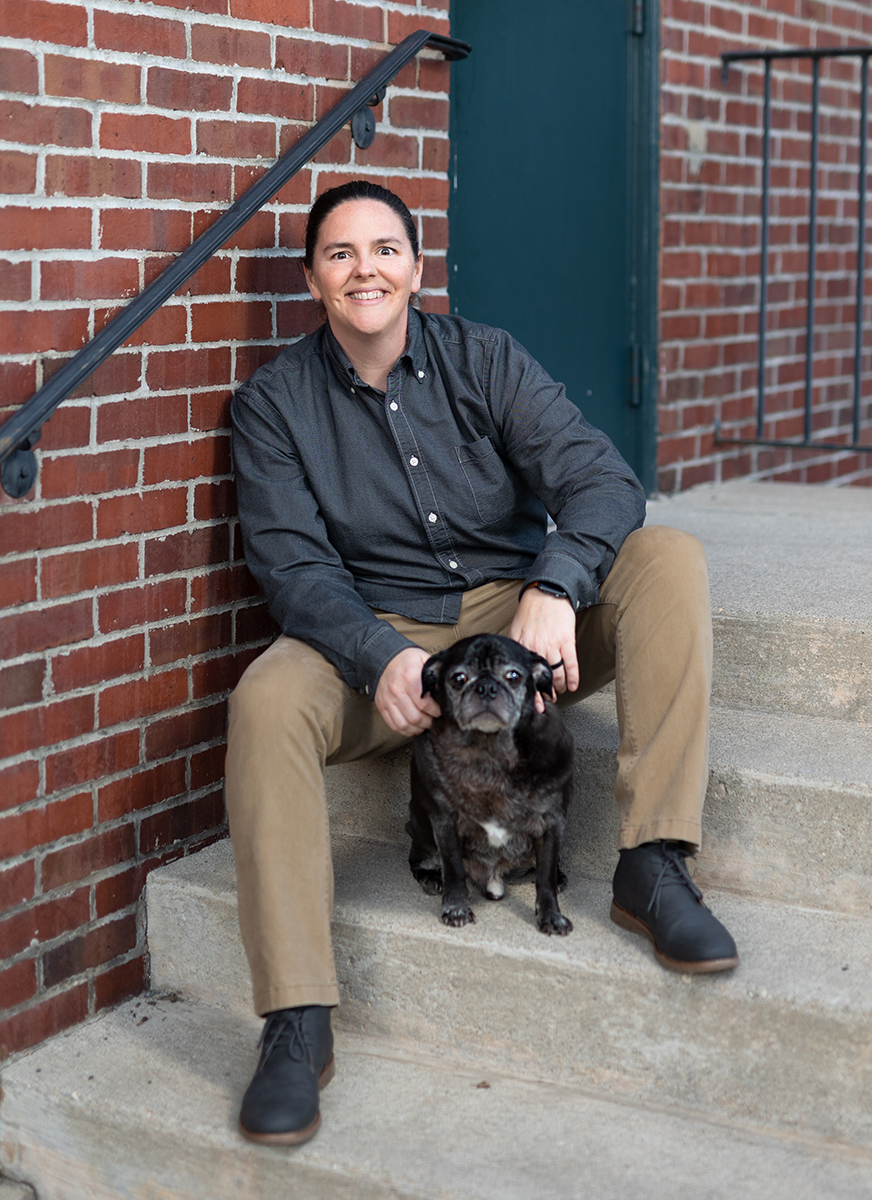Famous Black Hoosiers and the Latest from the IN Statehouse

With committees at full tilt and lawmakers raining down amendments like Oscar Robertson raining three pointers, the Indy Chamber Business Advocacy crew was flying around the Statehouse this week like Major Taylor around a velodrome. All your “need-to-know” updates are below, of course, and – in honor of Black History Month – we’ll introduce you to some famous Black Hoosiers along the way.
Business Equity for Indy
As the story goes, Madam CJ Walker decided to build the iconic Walker Theatre in 1915 after being told by a ticket clerk at the Isis Theater downtown that admission for African Americans was 25 cents, instead of the 15 cents white people had to pay.
Madame Walker went on to build the country’s first Black woman-owned cosmetics empire, and demonstrated a passion for growing Black community wealth. That same passion undergirds Business Equity for Indy (BEI), one of the key strategic initiatives of the Indy Chamber.
BEI is a joint effort of the Chamber and Central Indiana Corporate Partnership, in collaboration with the Indianapolis Urban League, to grow a more inclusive business climate and build greater equity and economic opportunity for the Indy Region’s Black residents and people of color. This effort is focused on three P’s: Procurement, People, and Policy.
Mr. Mamon Powers of Powers & Sons Construction chairs the BEI Policy Taskforce, which convenes corporate and community leaders to advance policy to support racial equity. BEI has prioritized three issues in 2023, all of which saw movement at the Statehouse this week:
Public Health Investment
SB 4 passed out of committee on a 12-0 vote Wednesday, a solid showing of bipartisan support to make transformational investments in Indiana's public health infrastructure. The Indy Chamber team testified in support of the bill, as did virtually every workforce development and employment organization in the state.
Hitting a high note like Hoosier-born opera star Angela Brown—Amendment 3 to SB 4 adds maternal and child healthcare to the list of “core services” local health departments will provide in exchange for increased funding from the state. Indiana’s abysmal maternal and infant mortality rates (third and fourteenth in the country, respectively) are no secret, but the rates for Black mothers and infants are staggering: maternal mortality rates for white women in 2020 were 107.8 deaths per 100,000 live births, while the rate for Black women was 208.4 deaths per 100,000 live births, 93% higher than their counterparts.
Indiana’s infant mortality rate reflects nearly the same disparity; the average mortality rate for all infants in Indiana in 2020 was 6.6 per 100,000 live births, but the mortality rate for Black infants the same year was 13.2 per 100,000 live births. If Indiana is serious about eliminating chronic health disparities for Black Hoosiers, saving the lives of Black mothers and babies seems an excellent place to start.
There was some pushback from opponents of SB 4 who cast the bill as an significant expansion of IDOH’s authority over local health departments, but none landed the kind of knockout blow World Boxing Hall of Famer and former Marion County Sheriff’s Deputy Marvin Johnson used to throw (46-3, 35KOs). To be clear, SB 4 is a purely optional opportunity for local health departments to access additional resources when they implement reforms to administer services more efficiently. It’s also a critical step to invest in Hoosier’s health, and one we’ve been behind from the beginning.
Mental Health Investment
Indiana Avenue legend Wes Montgomery gained fame as a jazz virtuoso, touching countless listeners with his music. We all know that music can help heal the soul, and there are many Hoosiers in need of healing. In fact, Black and Hispanic/Latino people in the United States are almost 60% more likely to experience symptoms of a mental health issuescomparedchallenges compared to whites. Similar trends are seen in the rates of drug overdose deaths, despite very little difference in the rates of drug use among these groups.
The availability and accessibility of mental health services is a major priority of leaders in the Black community in the Indy Region and across the state, such as the Indianapolis African American Quality of Life Initiative and Faith in Indiana. Standing up and properly resourcing a statewide mental health crisis response system of the kind proposed by Senator Mike Crider in SB 1 is critical to Indiana’s workforce health and readiness and the state’s ability to address the challenges of creating racial equity.
We were very happy to see SB 1 pass out of the Senate Appropriations Committee Thursday on a 13-0 vote, and we’ll continue to advocate for this crucial investment in Hoosiers of all backgrounds.
Automatic Enrollment of 21st Century Scholars
Even before COVID-19 upended education from pre-K to university, Indiana’s postsecondary enrollment was dropping like state track and field records in Maicel Malone-Wallace's wake.
Between 2015-2020, postsecondary enrollment in the state fell 12 points overall, with even steeper declines for Black and Latino students. At the same time, demand for Indiana workers with degrees has been climbing faster than a Babyface single up the pop charts. We noted in our last update the Indiana Economic Development Corporation’s announcement that 218 companies committed to locate or expand in Indiana in 2022, investing more than $22.2 billion (+250% from 2021) in their operations and creating 24,059 new Hoosier jobs with an average wage of $34.71/hour. For Indiana to continue to compete for that kind of investment, producing greater numbers of diverse graduates with four-year degrees—and retaining them here after graduation—is an economic imperative.
To address that imperative, Leader of the Indiana Black Legislative Caucus Representative Earl Harris introduced HB 1449 to create an automatic enrollment mechanism for 21st Century Scholars, an issue about which he’s long-been passionate for—and which we see as a Big Mac (George) McGinnis slam dunk.
We were heartened to see HB 1449 receive a hearing this week and passed unanimously. We testified in support of this bill on behalf of both BEI and the Indy Chamber, joined by reps from the Indiana Commission on Higher Education, the Indiana Latino Institute, the Indiana Chamber of Commerce, and several others. HB 1449 has been referred to Ways & Means for a fiscal discussion—we hope to see it move through the legislative process like Chris Doleman through an offensive line, and we’ll be pulling for it every step of the way.
BEI will continue to advocate and mobilize community partners on these priorities as session moves forward—and we’ll keep you updated every step of the way!
It’s Like Déjà Vu All Over Again—Sort Of
Lawmakers in both chambers took up a dozen or so education bills this week, some of which bore an eerie resemblance to bills that died at the Statehouse last year but have risen to roam the halls of government again. One such bill, heard and held in committee this week, was SB 188, a move to require all candidates running for a local school board to state a party affiliation—Republican, Democrat, or Independent.
Shout out to Senator Greg Walker for a drive worthy of Ann Gregory (a Hoosier and the first Black woman to play in a USGA Championship—at Meridian Hills, no less) priase, where he questioned how much partisan identity really does (or should) inform an elected official’s policy positions. The Indy Chamber team testified against SB 188, joining all 290 of Indiana’s school districts in their opposition to SB 188.
Another item that saw serious action on this week is HB 1002, which would establish “career scholarship accounts” to support modern apprenticeships in Indiana. The House Education committee adopted amendments to improve the original bill by adding capacity-building funds for intermediary organizations (like our partners at Employ Indy and Ascend) that will help students, parents, employers, and schools navigate the program; amendments also placed parameters on individual career scholarship grant amounts (between $2,500 and $5,000) that will help control costs.
Next Week
There’s sure to be a lot of moving parts at the Statehouse next week. For those follow along, here’s your “what to watch for” list:
- SB375 – Makes several changes to the state-funded On My Way pre-K program, including raising the income eligibility limit to allow more families to access affordable, high quality care. We’re big fans.
- HB1599 – Allows for the creation of Tourism Improvement Districts, an area and special assessment fee that would support tourism development in communities around the state.
- SB248 – Sets up a system for Hoosiers who are non-citizens to obtain legal driving privileges.
- SB 339 – Sets up a tax credit for a contribution to an affordable housing organization.
- SB205 – Creates a taskforce to study strategies for the reduction of violent crime.
A big thanks to all you readers out there. Catch up with you soon.
Never Miss an Update
Stay informed on all things Statehouse. The Indy Chamber's Business Advocacy team provides curated Legislative Updates every week. Sign up for one email a week!
Join Us at the Next Pastries & Politics!
Join the Indy Chamber Advocacy team on as we discuss the state of play just after the halftime of the General Assembly’s 2023 budget session at our next Pastries & Politics event, presented by First Financial Bank.
Real-Time Updates
To keep track of our efforts in real-time, follow @IndyChamber, @staylorhughes, and @Adam_Burtner on Twitter throughout the session and look for #indychamberadvocacy on social media to see what our team is up to.


Join Our Newsletter
Quick Connect Links



